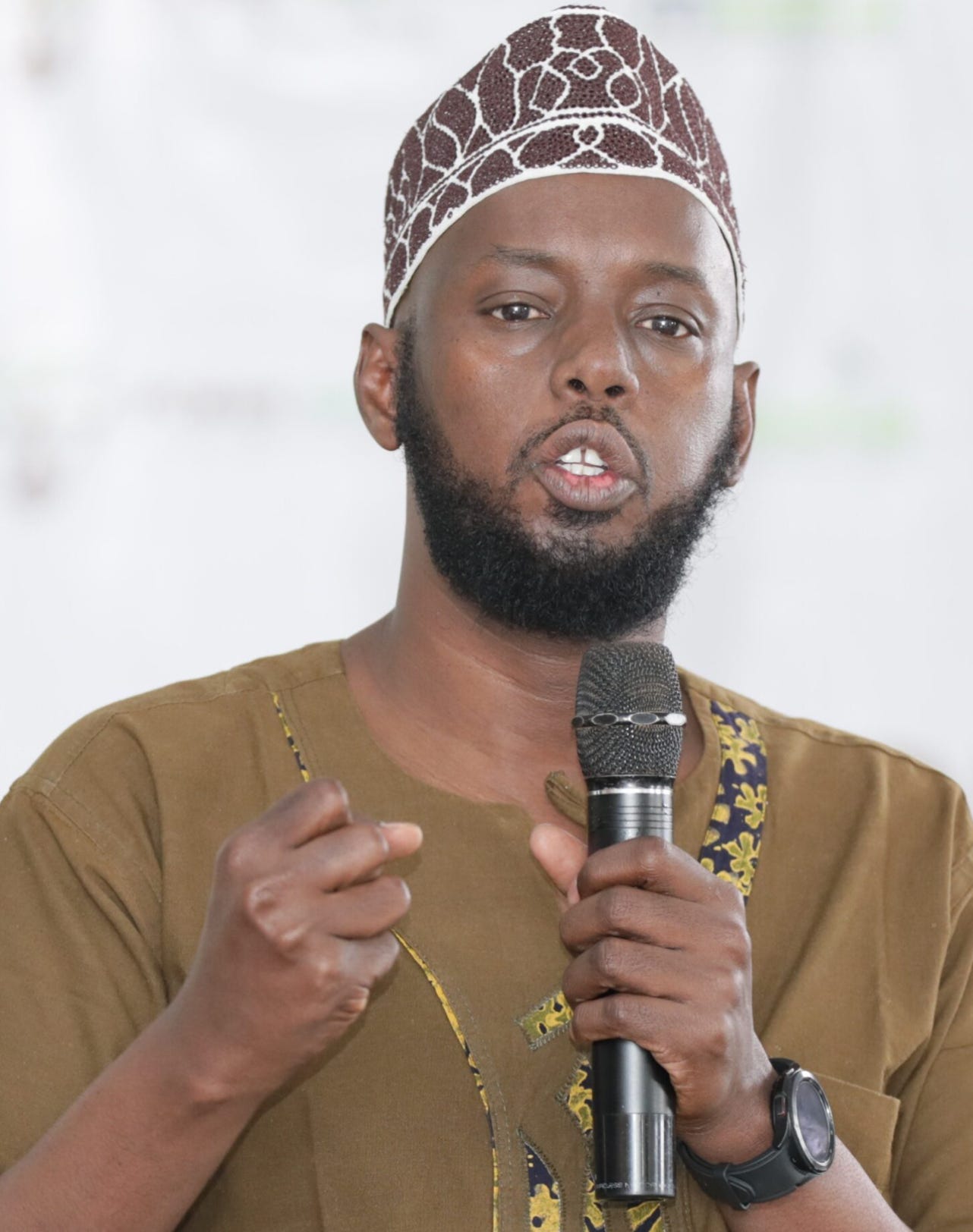Climate Action Hero: Mohamed Adow
Our Story Together: Finding hope, inspiration, and encouragement in our past and present
He began life as a nomadic pastoralist in northern Kenya, but climate change forced him from that path.
Climate Action Hero Mohamed Adow had what was to be his destiny upended by climate impacts that wrecked his family’s way of life. He says it best himself:
My existence has been a complex combination of chance and predetermined outcomes, where optimism and pessimism have intertwined. However, I have always possessed a strong determination to improve my own situation and that of those around me.
I was brought up as a herdsman in the most barren, isolated, impoverished, and marginalised area of Northern Kenya, which borders Somalia on the east and Ethiopia on the north. My destiny, like that of my fellow pastoralists, was predetermined from birth: a life of nomadism. I was expected to travel with my family’s livestock in search of water and grazing areas for the rest of my days.
For centuries, my community had lived comfortably off its livestock. When recurrent climate change-induced drought started killing our camels, cattle and goats, I knew our only lifeline was under an infernal threat. Now, we rely on food and cash handouts for survival.
Mr. Adow couldn’t follow in his family’s nomadic footsteps because climate change blew those footsteps away.
So he began to chart his own path for their sake, and for all those whose lives have been upended and even destroyed by climate change.
I was driven by one desire: to offer hope and support to members of my community and others in need of relief.
This desire led him first to Northern Aid, a relief and development agency in Nairobi, and then to Christian Aid, where he quickly rose to prominence as an effective pioneering leader on climate action. He knew that simply feeding hungry people was never going to address the underlying reasons:
If you fail to address the root causes of people’s vulnerability, you perpetuate suffering. The food and cash handouts were doing precisely that, easing hunger but not slaying the real monster: climate injustices and historical marginalization.
And so while at Christian Aid he became an expert in climate justice and energy prosperity, served as Board Chair of Climate Action Network International, and played a crucial role in the creation of the Pan-Africa Climate Justice Alliance (PACJA), which now has over 1,000 organizations in 48 countries. (I will have more to say on PACJA in an upcoming post.) Along the way he earned a Masters from the University of London in global energy and climate change.
These experiences prepared him for his next step. In 2018 Mr. Adow founded Power Shift Africa, which he continues to lead. He saw both the incredible renewable energy potential of Africa, but also how fossil energy impoverished Africans while simultaneously creating destructive climate impacts, and how little most Africans were aware of these facts.
As such, Power Shift Africa’s mission is:
to mobilise climate action in Africa, amplify African voices through increased visibility in media and public communications, and leverage this voice internationally. As part of our work, PSA is helping to build dedicated platforms of African civil society organisations, technical experts and high level leadership that will engage collectively to ensure transformative, Africa-led efforts to accelerate and scale-up the harnessing of the continent’s huge renewable energy potential (emphasis added).
In keeping with this, Mr. Adow was one of the coauthors of the 2023 report, Just Transition, which lays out a substantive case for African countries to come together on a bold plan to make Africa the clean energy and economic powerhouse it has the potential to be.
As Mr. Adow said at the report’s launch, it is time for Africans “to power people-centered prosperity and wellbeing in this era of climate change… We can choose another vision.”1
As he has for years, Mr. Adow is currently attending the international climate negotiations or COP30 in Belem, Brazil, where he is advocating for climate justice. Here’s his latest report:
For too long, climate action has been shaped in closed rooms in distant capitals. But here in the Amazon, the people who have done the least to cause this crisis — Indigenous peoples, local communities, young people, and those on the frontlines — are showing the world what real climate leadership looks like. If governments truly want to tackle the climate crisis, they must listen to the voices from the ground and put people, not polluters, at the heart of climate action.
I grew up as a victim of climate change, but today I am on the frontlines of climate justice.
Mr. Adow sums up his own story quite well: “I grew up as a victim of climate change, but today I am on the frontlines of climate justice.”
I am grateful for Mohamed Adow’s leadership. He is a true Climate Action Hero making the impossible possible and the possible actual and the actual beautiful and our future come faster.
From whence does our hope come? It comes from joining together to make hope happen. Join us!
If you are new here, check out our Intro Series as well as others in this Our Story Together Series. If you like this post, please “like,” comment, and share. And thanks for all you’re doing.
This quote from Mohamed Adow can be found around 1:08:50 on the YouTube video of the Zoom call recording.





